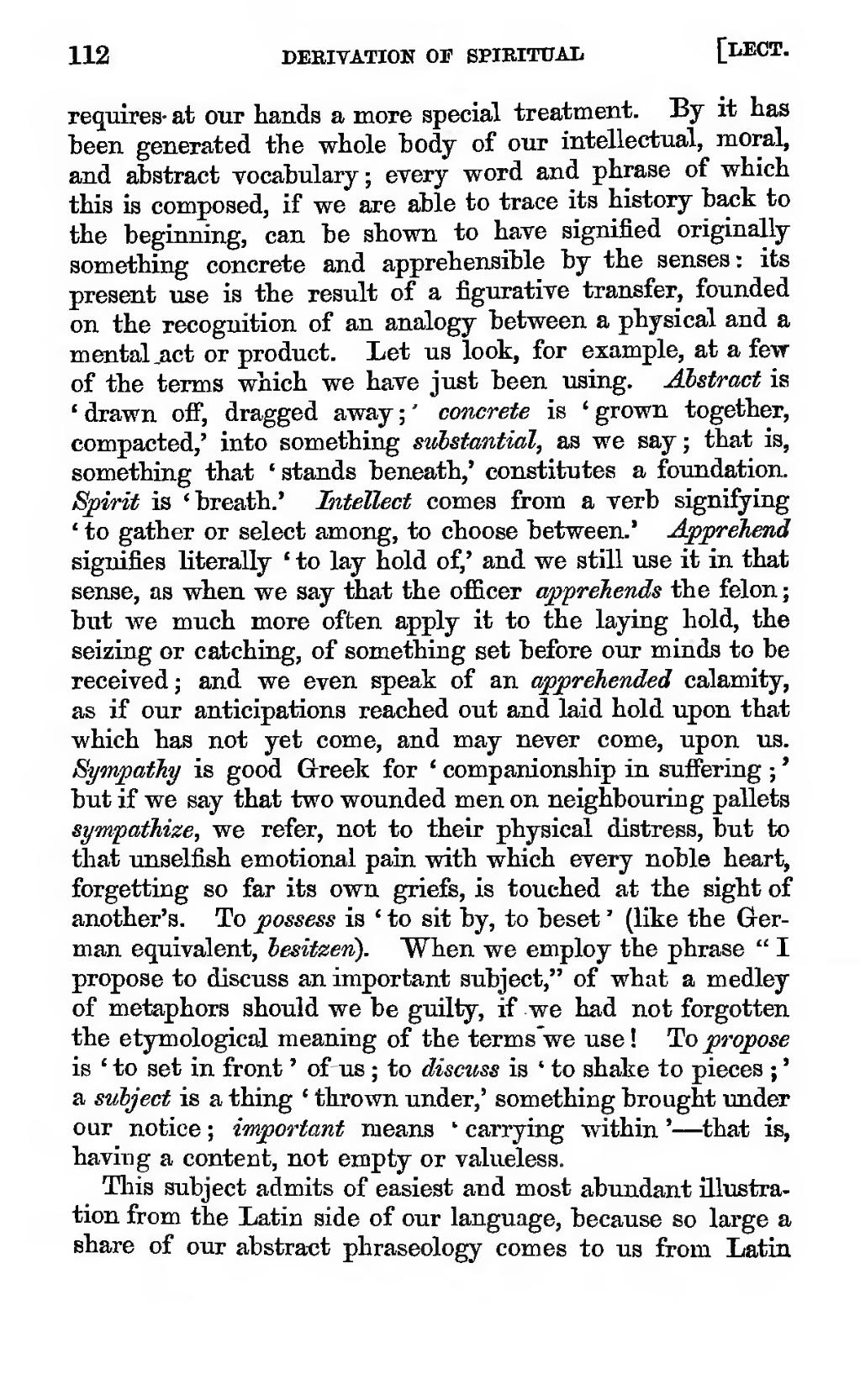requires at our hands a more special treatment. By it has been generated the whole body of our intellectual, moral, and abstract vocabulary; every word and phrase of which this is composed, if we are able to trace its history back to the beginning, can be shown to have signified originally something concrete and apprehensible by the senses: its present use is the result of a figurative transfer, founded on the recognition of an analogy between a physical and a mental act or product. Let us look, for example, at a few of the terms which we have just been using. Abstract is 'drawn off, dragged away;' concrete is 'grown together, compacted,' into something substantial, as we say; that is, something that 'stands beneath,' constitutes a foundation. Spirit is 'breath.' Intellect comes from a verb signifying 'to gather or select among, to choose between.' Apprehend signifies literally 'to lay hold of,' and we still use it in that sense, as when we say that the officer apprehends the felon; but we much more often apply it to the laying hold, the seizing or catching, of something set before our minds to be received; and we even speak of an apprehended calamity, as if our anticipations reached out and laid hold upon that which has not yet come, and may never come, upon us. Sympathy is good Greek for 'companionship in suffering;' but if we say that two wounded men on neighbouring pallets sympathize, we refer, not to their physical distress, but to that unselfish emotional pain with which every noble heart, forgetting so far its own griefs, is touched at the sight of another's. To possess is 'to sit by, to beset' (like the German equivalent, besitzen). When we employ the phrase "I propose to discuss an important subject," of what a medley of metaphors should we be guilty, if we had not forgotten the etymological meaning of the terms we use! To propose is 'to set in front' of us; to discuss is 'to shake to pieces;' a subject is a thing 'thrown under,' something brought under our notice; important means 'carrying within'—that is, having a content, not empty or valueless.
This subject admits of easiest and most abundant illustration from the Latin side of our language, because so large a share of our abstract phraseology comes to us from Latin
